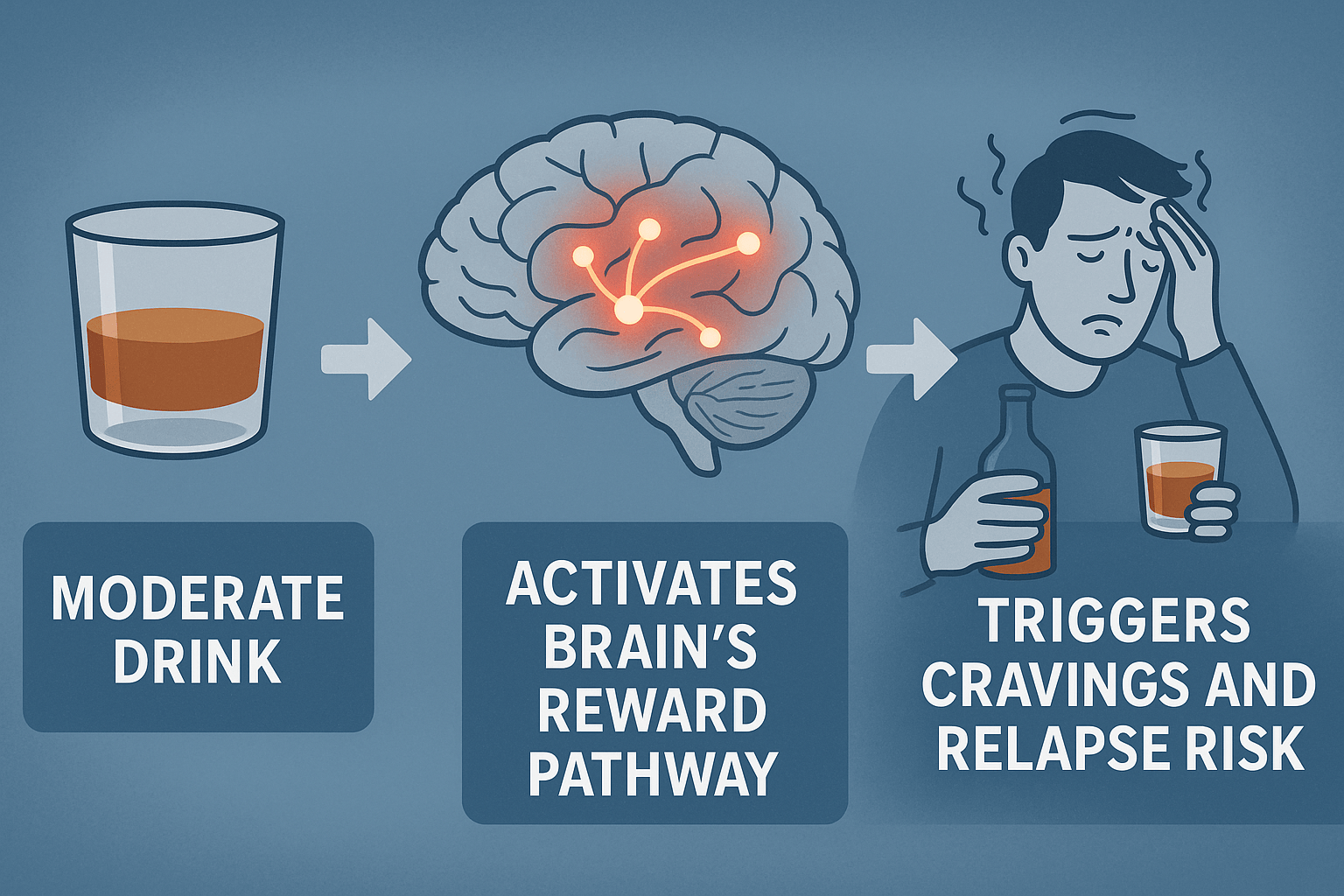Can I Drink in Moderation as an Alcoholic?
Why This Question Matters in Recovery
Everyone recovering from alcohol use disorder asks themselves: “Can I drink in moderation as an alcoholic?” It’s a reasonable question but one with complex answers. At Amazonite Treatment Center, we address this directly—because clarity leads to informed choices and lasting recovery.
Understanding Alcohol Use Disorder (AUD)
Alcohol dependence rewires the brain, making moderation difficult and risky. For people diagnosed with AUD, even small amounts of alcohol can trigger cravings, reduce inhibitions, and rapidly escalate into uncontrolled use. This reality makes moderation an ambivalent or unstable goal.
The Risks of Attempting Moderation

1. Loss of Control
Even occasional drinking can erode boundaries, leading to relapse.
2. Tolerance and Escalation
The body may need more alcohol over time to achieve the same effects, making moderation unsustainable.
3. Emotional and Cognitive Load
Constant focus on moderation may prevent deeper emotional healing and stress management.
Why Complete Abstinence Often Works Better
Science-Backed Clarity
Research consistently shows that abstinence provides a more measurable path away from relapse.
Peace of Mind
Clinically, total sobriety removes guesswork and helps individuals rebuild trust in themselves.
Holistic Recovery
Abstinence enables focused therapeutic work on underlying emotional and mental health issues.
When Moderation Fails—and Why
People with severe addiction or long-term alcohol use rarely succeed with moderation. Cold, precise breathing becomes difficult; they may misjudge limits, rationalize, or return to past patterns.
At Amazonite, our approach advocates for abstinence not as a punishing rule, but as a restorative practice.
Support for Alcohol-Free Living at Amazonite Treatment Center

At Amazonite, we provide:
Dual-diagnosis care to address emotional roots of addiction
Medical supervision to support detox safely
Behavioral therapy for long-term coping skills
Peer support and aftercare planning focused on sober life
With tailored treatment plans that center on safe, sustainable sobriety, our clients rediscover life beyond alcohol.
